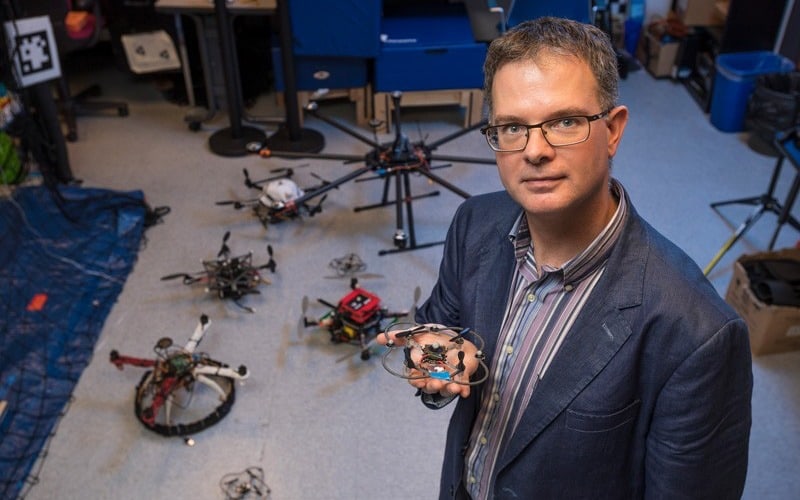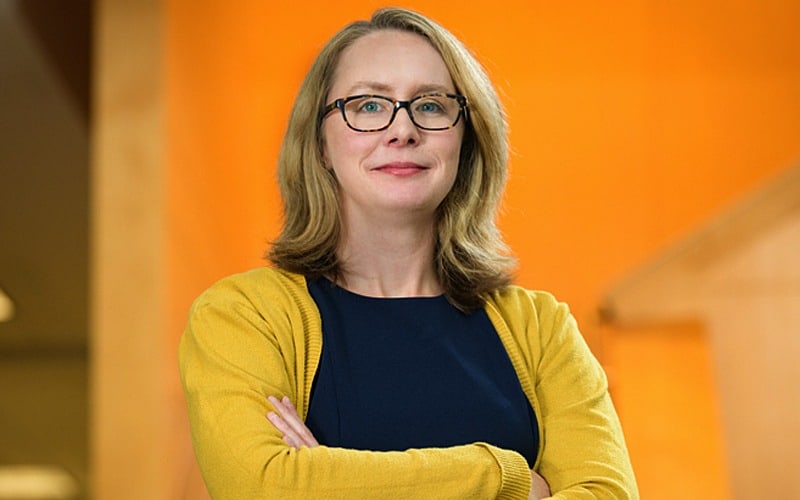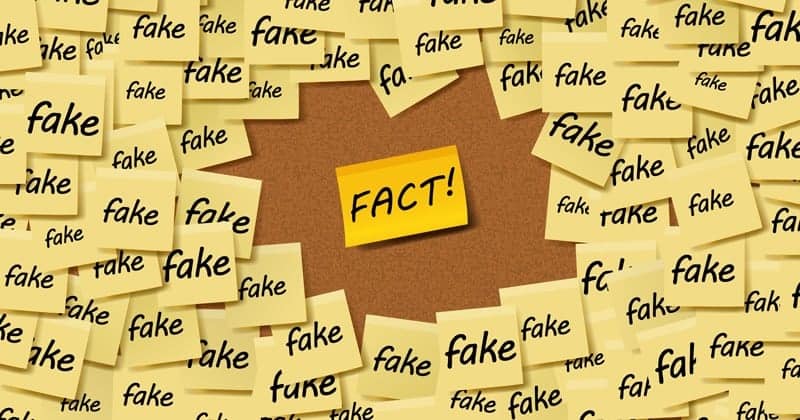 Research & Discovery
Research & Discovery
A Blog Devoted to UD Innovation, Excellence and Scholarship
Research & Discovery
A Blog Devoted to UD Innovation, Excellence and Scholarship
Recognition for Robotics Expert
ABOVE: Professor Herbert “Bert” Tanner is on the leading edge of robotics and control technology. | Photo by Kathy Atkinson
Herbert Tanner named Fellow of the American Society of Mechanical Engineers
Today, you can walk into a car dealership and purchase a car that parallel parks itself, thanks to carefully designed algorithms and strategically placed sensors. Engineers like Herbert “Bert” Tanner laid the groundwork for this automotive capability back in the 1990s. He tackled the problem of autonomous parallel parking around obstacles in an undergraduate senior thesis in mechanical engineering.
“I was amazed at how with the right mathematical machinery I could ‘design’ such control laws that made my systems behave so ‘intelligently,’ and how the underlying mathematical proofs allowed me to bet my money on them working right,” said Tanner, now a professor of mechanical engineering at the University of Delaware. “I marveled how my simulated cars maneuvered and I was hooked.”
Since then, Tanner has been on the leading edge of robotics and control technology. Robotic drones have surged in popularity just recently for businesses and hobbyists alike, but Tanner has been working on drones for a decade, and on multi-robot systems in general for more than 20 years. He has published more than 130 journal articles and conference papers and written nine book chapters.
For his contributions to the field of multi-robot systems, Tanner was recently named a Fellow of the American Society of Mechanical Engineers (ASME).





